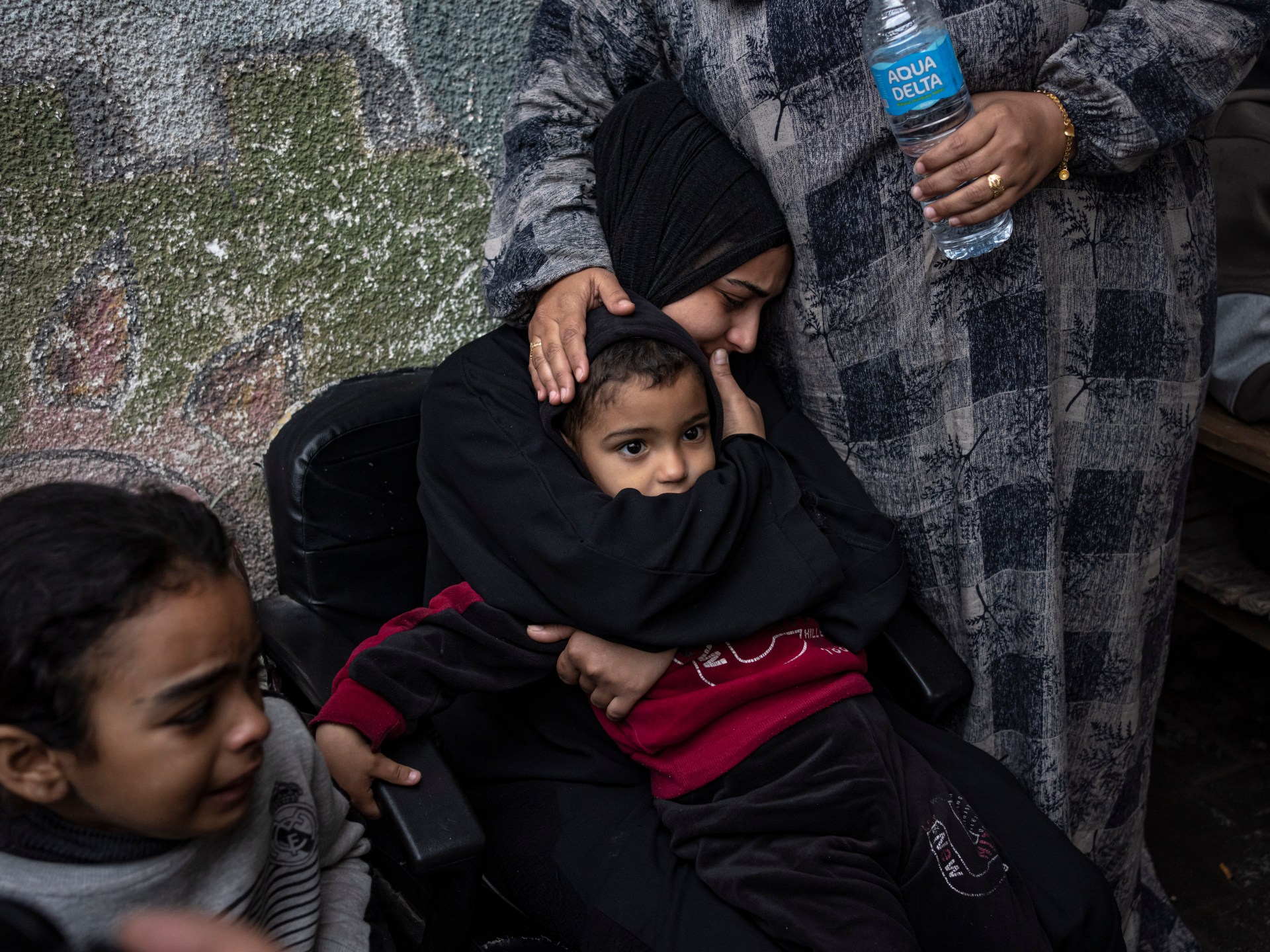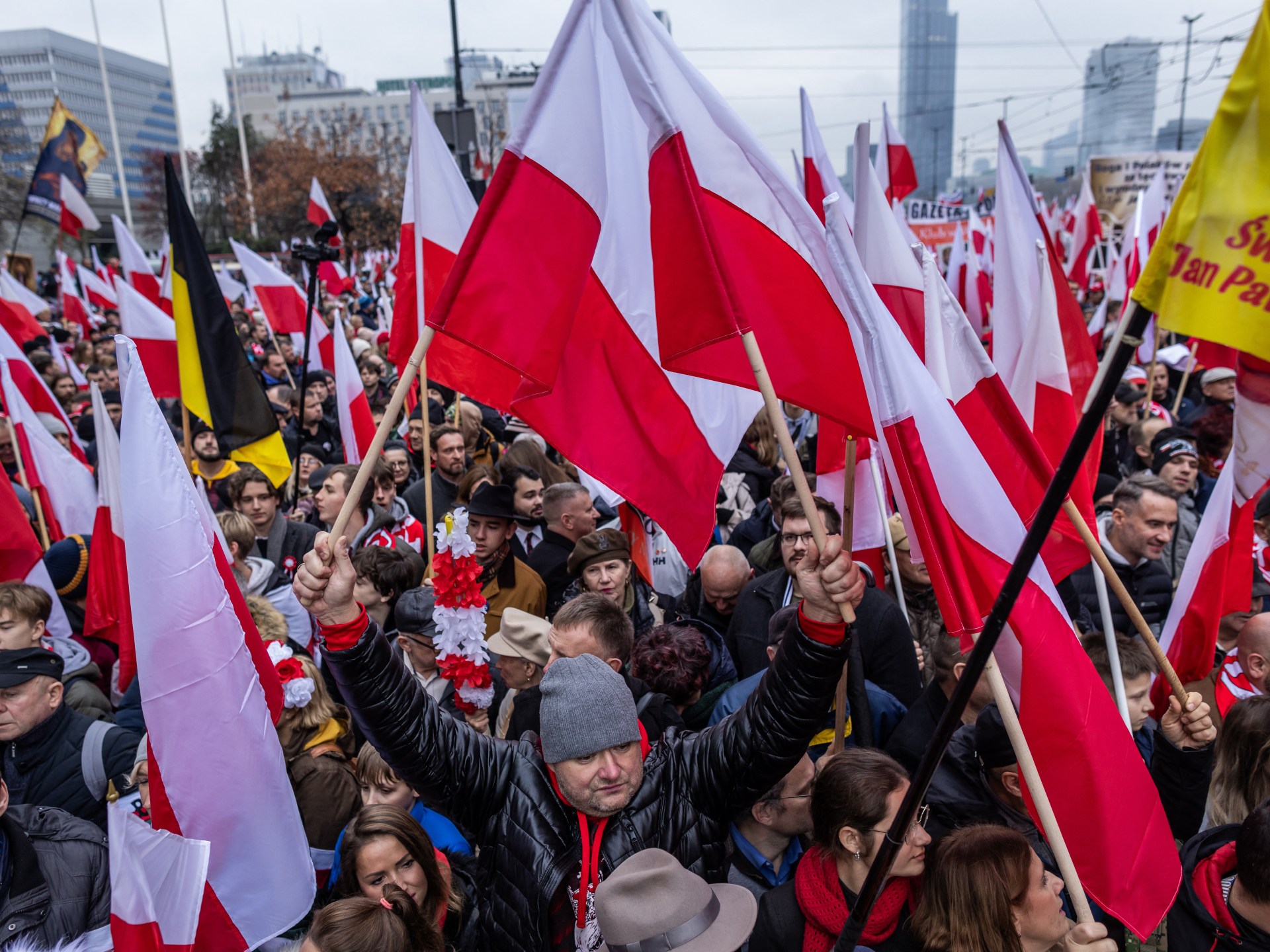
The United Nations Security Council (UNSC) has decided to call for a cessation of hostilities in Gaza and provide humanitarian assistance there delay for the third day in a row.
The delays came as the UN chief raised the alarm about the deteriorating humanitarian situation in the besieged Palestinian enclave, which has been under relentless Israeli bombardment since October 7. More than 20,000 Palestinians have been killed and tens of thousands are starving due to a catastrophic Israeli blockade.
Here is a summary of developments surrounding the draft resolution:
What is the UAE-led UN Security Council draft resolution on Gaza?
The United Arab Emirates distributed a “final version” of a draft resolution late Friday. The first version of the draft was published on December 8th The United States vetoed it a resolution calling for a ceasefire in the Gaza Strip.
In short, this is what Friday’s draft called for:
- All parties to the conflict should respect international humanitarian law and protect civilians, hospitals, UN facilities and humanitarian and medical personnel.
- An urgent and sustained cessation of hostilities should occur alongside the unimpeded flow of humanitarian assistance to the Gaza Strip.
- The parties to the conflict should allow and facilitate the flow of humanitarian assistance to Gaza via land, sea and air routes. This includes the rapid implementation of the opening of the Karem Abu Salem border crossing, known in Hebrew as Kerem Shalom.
- States not involved in the conflict are welcome to allow free passage of humanitarian aid. This particularly concerns Egypt and the coordination of its border crossing with Gaza at the city of Rafah in the south of the Gaza Strip. The United Nations will exclusively monitor all aid arriving through these routes.
After several changes, the draft now looks completely different. The revisions are due to a diplomatic back and forth This has been going on for days. The draft has been watered down to ensure a compromise and is still awaiting a vote.
NEW: @UAEMissionToUN distributes the final version of #UNSC Draft resolution on expansion #Gaza humanitarian aid. The draft resolution requires that the parties permit/facilitate the use of all land, sea and air routes to and throughout the Gaza Strip, including border crossings and the… pic.twitter.com/IWKpKbuzJw
– Rami Ayari (@Raminho) December 16, 2023
The latest draft also calls for “immediate and unconditional release of all hostages.” According to Security Council Report, an independent think tank that monitors the United Nations Security Council, this language was added at the request of several members, including France, Japan, the United Kingdom and the United States.
Monday’s developments
Depending on negotiations between the United Arab Emirates and the United States, the draft distributed on Friday was expected to be voted on as early as Monday.
“We have engaged constructively and transparently throughout the process to work together to achieve a result that will pass,” an anonymous US official told Reuters. “The UAE knows exactly what can and cannot happen. It’s up to them whether they want to do it.”
The resolution presented by the United Arab Emirates on December 8 called for an immediate humanitarian ceasefire between Israel and Hamas rejected by the USA while Great Britain abstained. All other 13 members of the Security Council voted in favor. The main focus of subsequent negotiations was to ensure that the US did not veto the resolution again.
Diplomats reported that the US wanted to tone down language about a cessation of hostilities.
Al Jazeera’s Rami Ayari reported that the vote was postponed until later on Monday and he was told that “cessation” would be replaced with “suspension” after the US objected to the wording.
The Security Council report added that the UK had called for the “immediate” cessation of hostilities to be replaced with language calling for an “urgent and sustained” cessation of hostilities. The draft submitted on Friday included language calling for “an urgent and sustained cessation of hostilities.”
Ayari later reported that the vote had been postponed until Tuesday morning to allow more time for negotiations. “The US is keen to avoid another veto, according to multiple sources,” Al Jazeera’s correspondent wrote.
Diplomats say so #UNSC Vote on it #Gaza The draft resolution on assistance/surveillance has now been postponed until tomorrow morning (December 19) to allow more time for negotiations. That comes after @I BELIEVE rejected the reference to “cessation of hostilities” in the text. This can be replaced with “suspension”. https://t.co/1LO38iuJWm
– Rami Ayari (@Raminho) December 18, 2023
Tuesday’s developments
An updated draft was circulated on Tuesday, changing “cessation” to “suspension.”
Furthermore, the UN monitoring assistance clause originally stated that the UN would inform the Palestinian Authority and Israel of the humanitarian nature of the assistance, without prejudice to inspections outside the Gaza Strip by states not involved in the conflict. The new version adds that the UN would notify authorities without prejudice to any inspection that does not unduly delay the delivery of humanitarian assistance to Gaza.
Akbar Shahid Ahmad, HuffPost’s senior foreign affairs reporter, posted on X that a Muslim diplomat said a U.S. veto was likely.
Ayari reported that despite the revisions, Washington remained undeterred and the vote was postponed again until Wednesday morning.
A Security Council report said that during the negotiations, the U.S. “apparently objected to references to Israel as an ‘occupying power’ and to language that, in Washington’s view, could be interpreted as imposing binding legal obligations under the UN Charter.” “
US State Department spokesman Matthew Miller said Washington would welcome a resolution that fully supports addressing the humanitarian needs of the people of Gaza, but the details of the text matter.
Wednesday’s developments
US Ambassador to the United Nations Linda Thomas-Greenfield reportedly met with US President Joe Biden on Wednesday.
Ahmad posted on He also reported that, according to a diplomat, Biden on Thursday ordered the US mission to the United Nations to veto a Security Council resolution on Gaza.
He added that the diplomat said the main sticking point for Biden was transferring control of aid inspections to the U.N., “a move the U.S. has advocated in other war zones.”
PassBlue, an independent organization that monitors the UN, posted on X that US diplomats agreed to monitor UN aid until Israel saw it.
The USUN diplomats apparently agreed with this paragraph in the Gaza draft text until #Israel saw it.
Israel wants to retain full control over humanitarian aid entering Gaza https://t.co/gzJpxQBq4G– PassBlue (@pass_blue) December 20, 2023
Ayari said some were under the impression that the repeated delays in voting were due to attempts to bring Biden on board. “These efforts appear to have failed,” he said.
A Security Council report also reported that other member states were also involved in the negotiations and suggested ways to speed up the aid monitoring system so that aid flows to Gaza are not expanded to another level.
The US responded with a rewrite that essentially eliminated the mechanism for monitoring UN aid.
The vote on the resolution was further postponed until Thursday.
Outlook from Thursday
The United Arab Emirates’ UN Ambassador Lana Zaki Nusseibeh expressed optimism about the resolution’s passage.
“I am optimistic and if this fails we will keep trying because we have to keep trying,” Nusseibeh told reporters. “There is too much suffering locally for the council to continue to fail here. … We have a resolution and we have to build on that.”
Ayari wrote on
They are waiting for Washington’s response, but “the first signals are not good.” If there had been an agreement, the updated text would have already been distributed to #UNSC members,” Ayari said.
It’s late and I’ll be going to bed soon, but here’s the status of the negotiations on it #UNSC Draft resolution #Gaza Expansion of assistance. After Blinken’s calls to his Egyptian and Emirati counterparts, ambassadors from the three countries tried to resolve the issue… https://t.co/kBGqf2Aex4
– Rami Ayari (@Raminho) December 21, 2023
Ahmad revealed that a diplomat said the likelihood that the US would veto the resolution on Thursday morning remained high.
To pass the resolution, at least nine of the Security Council’s 15 members must vote in favor and none of the permanent members – the United States, France, China, the United Kingdom and Russia – must veto it.






Recent Comments